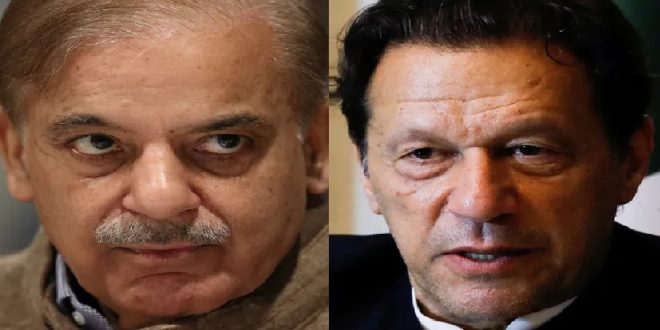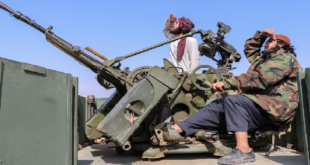04-04-2023
By SJA Jafri
ISLAMABAD: Pakistan’s Supreme Court has declared the country’s poll panel’s decision to delay the assembly elections in two provinces as “unconstitutional”.
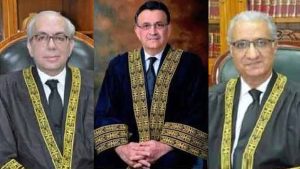 The top court on Tuesday ordered the government to hold snap polls in the most populous province of Punjab on May 14.
The top court on Tuesday ordered the government to hold snap polls in the most populous province of Punjab on May 14.
The court’s verdict followed a petition filed by the main opposition Pakistan Tehreek-e-Insaf (PTI) party, led by former Prime Minister Imran Khan.
Khan’s party had challenged the Election Commission of Pakistan’s (ECP) decision to delay the Punjab polls from April 30 to October 8 after the government refused to give funds to conduct the exercise citing the economic crisis.
The PTI in January decided to dissolve the Punjab and Khyber Pakhtunkhwa provincial assemblies it controlled in a bid to force early national elections, a demand Khan has been making since he was removed from power a year ago.
Pakistan historically holds the national and provincial elections together. However, the ECP is also bound by the constitution to hold elections within 90 days of the dissolution of a legislative assembly but when the ECP refused to announce dates for the polls, the Supreme Court in February took a suo motu notice and in a split 3-2 verdict, ordered the poll panel to announce the schedule for elections in the two provinces.
Last month, the ECP announced the Punjab elections on April 30. On March 22, however, it withdrew the schedule and declared October 8 as the new date, forcing the PTI to move the top court.
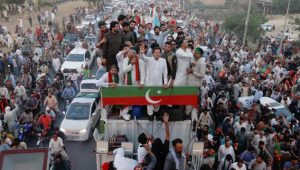 The Supreme Court said the ECP exceeded its jurisdiction by delaying the Punjab election date. “The constitution does not give the Election Commission of Pakistan the authority to postpone the elections,” it said.
The Supreme Court said the ECP exceeded its jurisdiction by delaying the Punjab election date. “The constitution does not give the Election Commission of Pakistan the authority to postpone the elections,” it said.
On holding the polls in Khyber Pakhtunkhwa province, the top court said a petition should be filed at an appropriate forum.
The court also ordered the government to release 20 billion rupees ($70m) by April 10 for the elections and the ECP was asked to submit a report on available funds on April 11.
Gov’t-judiciary tussle
The top court’s verdict came amid an ongoing tussle between the judiciary and the government, which last week passed a new law to curtail the powers of the Supreme Court’s chief justice.
Several government officials also publicly raised doubts about the fairness of the top court, expressing their “lack of confidence” in the three-member bench hearing the PTI case after two other judges quit.
The government had demanded a full bench with all the Supreme Court judges on it to hear the matter, but the top court rejected the request on Monday.
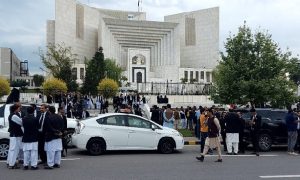 In response, Foreign Minister Bilawal Bhutto-Zardari said the country could face a serious crisis if the top court did not constitute a larger bench.
In response, Foreign Minister Bilawal Bhutto-Zardari said the country could face a serious crisis if the top court did not constitute a larger bench.
“My worry is that if a larger bench is not formed, God forbid, we could have a martial law or an emergency-type situation could be imposed on the country,” he said.
Referring to Chief Justice Umar Ata Bandial, Bhutto-Zardari said: “When your own court and your own judges express no confidence in your character and the bench, and distance themselves when such an important question is before you, then the appropriate thing to do is to form a larger bench.”
A new constitutional crisis has emerged in Pakistan, which for months has been engulfed in another political crisis that shows no signs of abating.
On Tuesday, the government presented a bill in the National Assembly, the lower house of parliament, seeking to limit the powers of the Supreme Court, which, Prime Minister Shehbaz Sharif alleged, was creating “political instability” in the country.
 Pressmediaofindia
Pressmediaofindia
